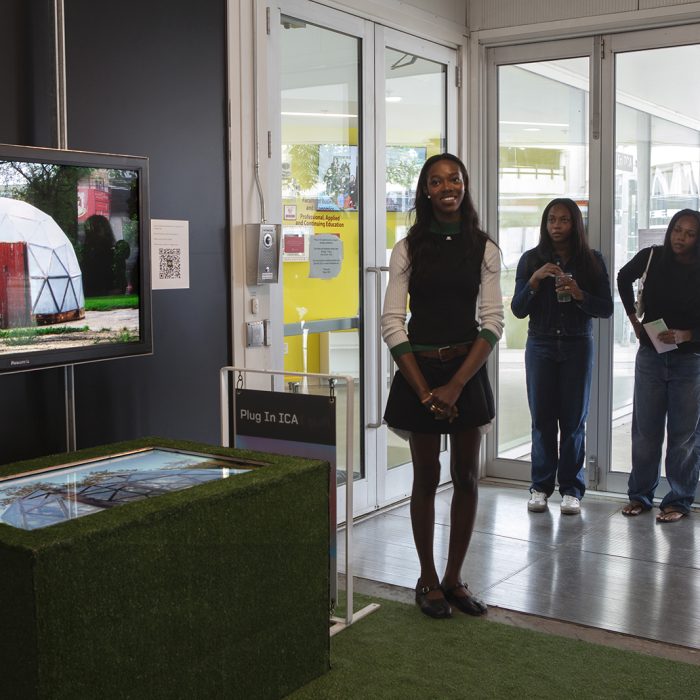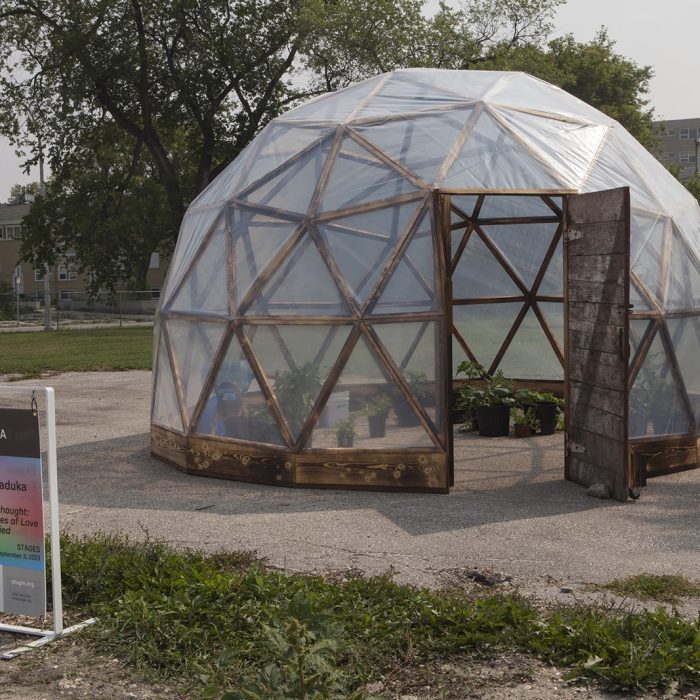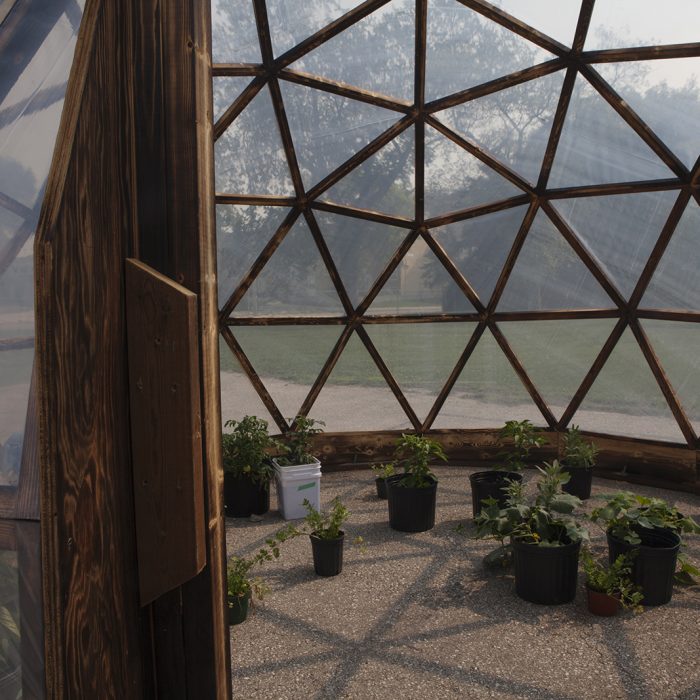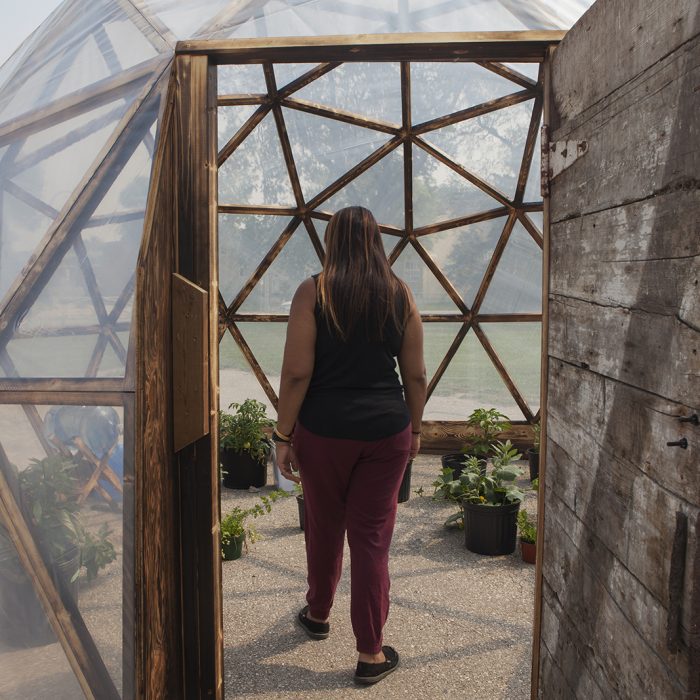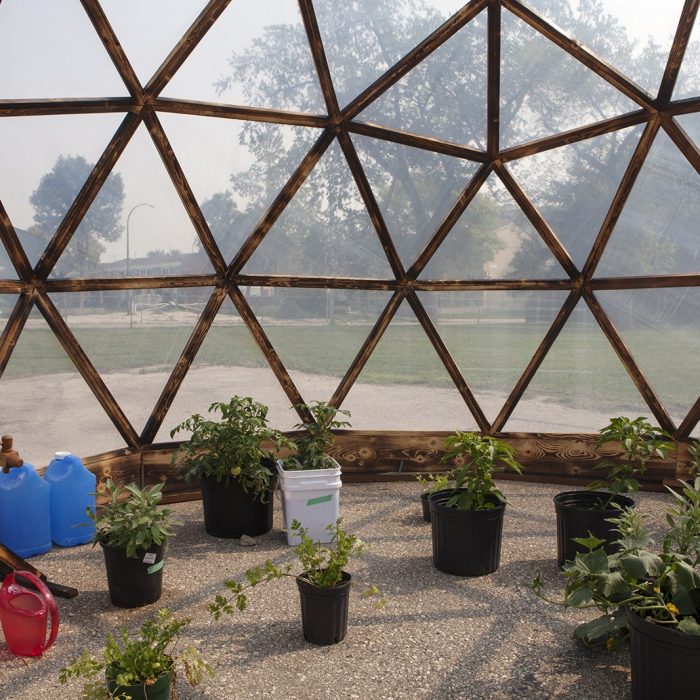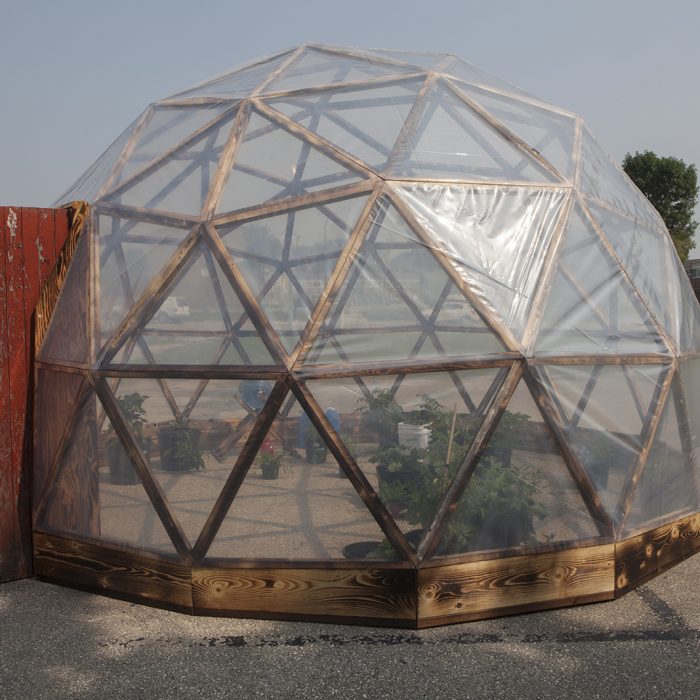Ekene Emeka-Maduka
Manitoba
Ekene Emeka-Maduka, Nri* for thought: Languages of Love Personified, Geodesic Dome, Community Garden.
In her own words about her STAGES project: The goal of my project is to genuinely engage the land I have taken up space in for almost six years. Like many settlers I meet, I still need to learn more about the land’s origin. Settlers that I continuously interact with express notions of occupying the space relating to what is already in place–So to speak, as met on arrival. These receptions articulate the history of erasure that is happening. I believe not engaging or passively doing so amplifies this erasure. It comes with personal emotion when I reflect on my lack of knowing or contributing to the land. Engaging with land and history is work that involves capacity. The STAGES Binninal creates this opportunity to have that capacity.
Although most of my life was in Nigeria, I predominantly knew the conditions I met at the time of my arrival (birth) and growing up. Though immersed, the original cultural practises I long to know are distant from daily life; a hybrid of colonial influence, results of continuing globalization, and remnants of the past.
Only elders seem to have a wealthier knowledge of deeper cultural practises I wish I were knowledgeable of to properly navigate the contemporary version of my home that I contend. Going back to the past is impossible. However, I hope to work with youth, who are the future, to create something that is by us for us, that can serve as a material reminder of dreaming and hopefulness, making room to learn and grow from what is here and now.
For my installation in STAGES, I will make an intimate public space from a geodesic dome. These domes are typically to cultivate plants, although, in recent times, folks make “tiny homes” of them as a form of resistance to consumerism but also to reduce carbon footprints. People also use them as outdoor dog houses, for glamping, or as Airbnb. The environment surrounding the dome will be a free for all public food garden. Pre-capitalism, food was accessible through communal sharing. Irrespective of ownership, accessibility and sharing seem to be at the heels of many Indigenous cultures.
Through research, I have identified food as the most wasted substance in Manitoba but also globally. A simple Google search will lead you to this information. I have also identified a landfill in Winnipeg (Waste Connections of Canada) that collects food waste to make compost. The idea is to grow a garden of easy crops that grow well in Winnipeg’s soil hopes to use wasted food (now compost) to produce free food that is good to consume. The dome will serve as a refuge, shelter, and space for rest in the garden. With such projects, it is inevitable for difficulties in nuanced levels to present themselves; these are the grounds on which continuous learning can happen.
Ekene Emeka-Maduka is a visual storyteller based in Treaty 1, Territory 1 (Canada). She camouflages into characters in somewhat relatable backdrops that subtly subvert reality. She achieves relatability in her work through semiotics from mundane moments with commonplace significance in her home country, Nigeria, pit against moments potentially recognizable globally. Emeka-Maduka builds dramatic worlds that constantly question the version of reality we actively contend. She studies the relationship between self-identification and communal identity. The vessels in her work and their built universe are alive. They shed their skins through time, gradually becoming animated and birthing nuanced expressions, colours, and feelings relevant to ever-changing human conditions. Maduka’s works are shown locally and abroad. Most recently, at Lausanne Switzerland with Fabienne Levy Art Gallery and Untitled Fair Miami Beach.
Location: Friendship Centre Inc, 45 Robinson St.
Hours: 24 hour access
Acknowledgments
We are on Treaty 1 Territory. Plug In ICA is located on the territories of the Anishinaabeg, Cree, Oji-Cree, Dakota, and Dene peoples, and the homeland of the Métis Nation.
Plug In ICA extends our heartfelt gratitude to our generous donors, valued members, and dedicated volunteers. We acknowledge the sustaining support of our Director’s Circle. You all make a difference.
The artist acknowledges the support of the Canada Council for the Arts
We gratefully acknowledge the support of the Canada Council, the Manitoba Arts Council and Winnipeg Arts Council. We could not operate without their continued financial investment and lobbying efforts.
Plug In ICA relies on community support to remain free and accessible to all, and enable us to continue to present excellent programs. Please consider becoming a member of Plug In ICA and a donor at https://plugin.org/support or by contacting Caitlin at caitlin@plugin.org.
For more information on public programming and exhibitions contact Allison Yearwood at allison@plugin.org.
For general information, please contact: info@plugin.org or call 1.204.942.1043



